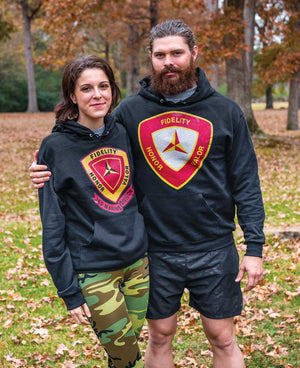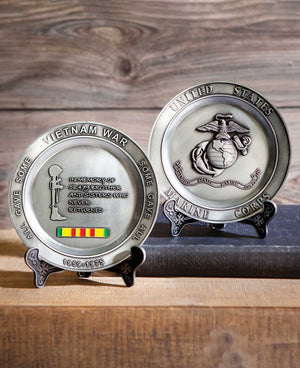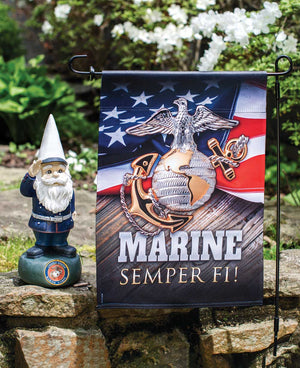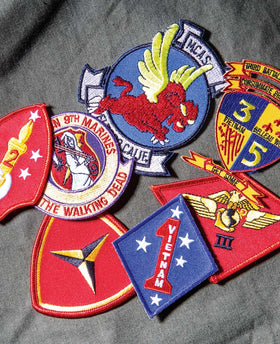I was once an infantry Marine, and this is my war story.
Spring of 2006, I am holding my rifle straight out with both hands in a half-squatting position yelling, “A hand grenade’s kill radius is five meters, Lance Corporal!” My team leader is three inches from my sweaty face when he shouts, “And what is the fragmentation radius?” My knees begin to shake as I shoot back, “15 meters, Lance Corporal!”
Happy with my answer, Lance Corporal gives me permission to go to sleep. It is well past midnight.
I am a “boot” adjusting to my new life in Fox Company, and Lance Corporal has recently returned from a nasty deployment in Iraq. He says that he is my father and that he knows what’s best. He slams my head into wall lockers to remind me of my ignorance as he yells, “You are going to war soon, and I won’t be there to babysit you!”
Iraq 2008, training is over, and I have treated my Marines just as my leaders treated me. My team leader is now my squad leader, and if I weren’t the radio operator I would lead one of his teams. This is the cycle, and my Marines will slam their Marines’ heads into wall lockers, too. It’s a tradition that has gone on for generations.
This morning we are preparing for a river patrol and a search for weapons caches. Rifles click rounds into place up and down the patrol as we exit the wire. It’s like a ritual that we have taken part in hundreds of times. Load a magazine into the well, tap it in, and pull the charging handle to the rear. Release the charging handle and the bolt leaves the buffer spring where it is guided over the magazine well. On its way to the chamber the bolt grabs a 5.56 round and slams it home. It’s a moment of mechanical beauty.
We arrive 30 clicks down the Euphrates River and get off the boats near the target house. We enter the farmer’s field from the river banks, and spread out into a well-rehearsed squad on line formation. This directs our fields of fire toward the house as a Cobra attack helicopter buzzes in the distance. A UAV drone looms above us, keeping an eye out, ensuring that no one is going to escape. I feel confident. We have trained for this.
During the deployment workups in the States, we spent weeks patrolling, looking for something that we knew wasn’t real. Digging into defensive positions and waiting the night out for an enemy we knew would never come. Spending rainy nights in muddy holes, fearing what our leaders might do to us if we fell asleep. Firing machine guns, shooting rifles and launching grenades at little green targets… All of it was just training ops.
Today, there are no firing range safety officers.
Through the sight of my rifle, I see a narrow view of the world. In the distance, I spot the target house. Everything looks normal, but that can be misleading. Advancing through the field I come within 20 meters of the house. I halt and check to see if my squad is still on line with me. Dusting off my ACOG rifle sight with my thumb, I wait for the signal from the squad leader to move forward.
Out of the corner of my eye I see a blur of black-and-white darting out from under a donkey cart. It’s like no dog I have ever seen, and it’s closing the distance between us faster than I can fathom.
Startled, I react as I’ve been trained. I pivot in his direction, shoulder my M16 and sight in. Flicking the safety off, I wrap my finger around the trigger. I can see its brown eyes dialed in on me as I follow his body with my rifle. Aim matters little, I have a full mag.
In Iraq, the joke has been that the war’s over and we’re here to kill dogs. On guard duty, I have spent many lonely nights with my rifle trained at the doorway, waiting for a pack of dogs to storm my post and eat me alive. The insurgents have left us to the strays who roam the night, and until this moment I believe I would have told you that I would kill anything if given the chance.
Waiting for the attack, I can see the dog’s stained teeth hanging over his black gums. He looks vicious, and falls well within the rules of engagement.
I don’t know why, but I decide that today won’t be his last. I lower my rifle and ease off the trigger. As these few seconds come to a close, I realize this is going to end badly.
Within inches of my barrel the dog suddenly stops and, with rehearsed arrogance, he retraces his paw prints back to his donkey cart. He lies down, and I swear I can see him smiling at me.
I break from his gaze to see my squad bursting into fits of laughter. My only kill in Iraq has just slipped through my fingers. Even though the Marines brought me up in a culture of violence, those brown eyes saw right through me.
We search the target house and find only a friendly Iraqi farmer. We walk back to the boats and cut through the calm Euphrates on our way back home. Lighting up cheap Iraqi smokes, we tell jokes and share stories. My squad will kid me forever about the dog I didn’t kill in that field of dying crops and ancient farm equipment, but all the same I will miss them when I get out. These moments in Iraq and my time in the Marines will be remembered as a life I once lived but never to be had again. It is over.
A vibration in my pocket wakes me up. It’s been almost a year since I signed my discharge papers, and college isn’t holding my attention. I find myself missing the vulgarity of the infantry. Through mouths filled with plugs of dipping tobacco, I had learned the finer points of ambushing an unsuspecting enemy. Today, my science professor bores me with recessive traits and genomes.
I look down at my cell phone to see what the vibration is all about. A text message from Allen reads, “Taylor from 4th plt [platoon] was killed. He was the smart kid who went to Citadel… F-ck.”
Last November, Fox Company deployed to Afghanistan, where they are in the thick of the fighting. Taylor was a good Marine, sent home early to his family. He will be missed.
It feels so strange that my friends are out fighting a war while I am home trying to get good grades. I joined the infantry in hope of giving meaning to my monotonous suburban life. In war, I thought I’d see the depth of man’s soul and witness the extremes of his emotions. I envisioned spending the end of my days like Hemmingway, drunk and writing amazing stories.
Life spared me of war’s atrocities and I am thankful for it. As the screen of my cell phone illuminates with grim news, I realize the world has had enough war stories. These stories are written in blood that seeps through the pages, and they speak volumes of our human tragedy.
Jeremy Profitt
Credit: http://www.anothersource.org/ptsd_1.html








Comments
Leave a comment